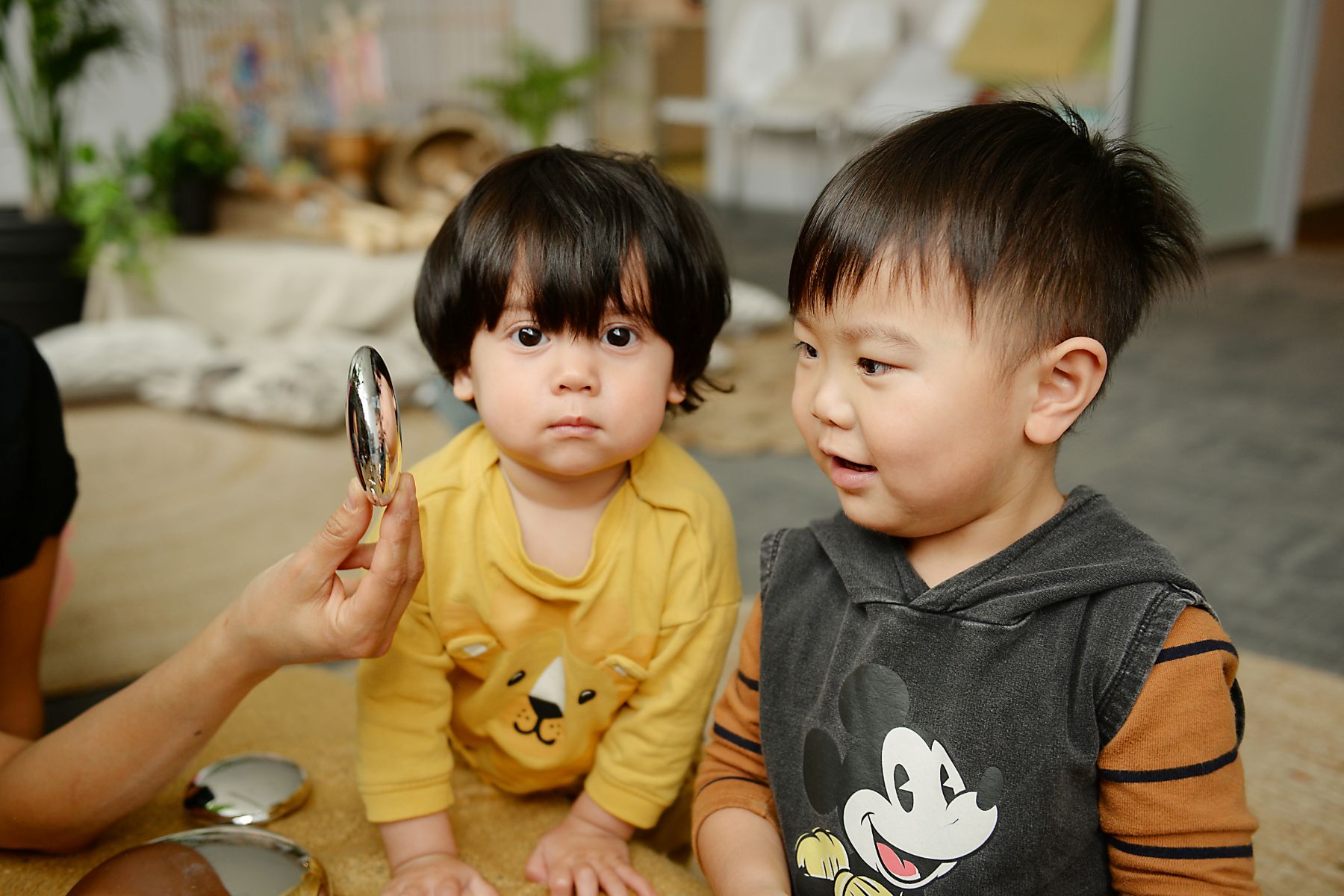
The Reggio Emilia approach is so much more than just education and childcare. It’s about a proven, unique concept that views the child as a capable individual who can follow a learning path driven by their own curiosity and interests, yet fully supported by everyone and everything around them.
This community consists of the early childcare educators, their surroundings (in Reggio Emilia the environment is considered as the third teacher) and each child’s parents, caregivers and family group.
With the Reggio Emilia approach, more than in any other early learning environment, parents/guardians and family are an integral element in their child’s learning pathway.
Role Definition in the Reggio Emilia Community
Everyone plays a role in a Reggio Emilia classroom. Right at the centre is the child – a protagonist with individual likes, dislikes, talents and vast potential to become their very best future adult self.
Around them is their community, which is made up of the:
- Teachers (early learning educators).
- The environment.
- Their family.
The role of the educator is to nurture and guide – to help direct a child’s natural instincts, providing an inclusive landscape of questioning, involvement, cooperation and discovery. The surroundings, or environment, of a Reggio Emilia centre is carefully constructed to support this journey.
The family – be it parents, guardians, caregivers or a wider extension – play an equally important role. As partners in their child’s journey, family members are encouraged to actively participate. This is achieved in many ways and can be fitted into even the busiest of lifestyles.
Family Involvement as Part of the Reggio Emilia Community
The dynamics of the Reggio Emilia concept make family involvement a priority. This is achieved in an infinite number of ways. For example:
- Integrating a Reggio Emilia-inspired home environment: The Reggio Emilia learning area is designed to encourage creativity, and this concept can be mirrored at home. It could be as simple as creating a natural, tactile bedroom environment, or a more intensive project - perhaps turning a small area of the garden over to nature, with bug hotels, a (child-safe) wildlife water feature or a worm farm. Parent-educator collaboration fosters a deeper understanding, allowing parents to provide a complementary home environment that continues to nurture a child’s natural curiosities.
- Sharing knowledge and skills: Every caregiver has something to share. Whether it’s about their job, a hobby, a life achievement or even overcoming adversity, valuable life journeys can be shared in many ways – and with as little or as much involvement as is wanted. For example, perhaps a parent might want to come in and give a talk, or maybe help their child create a project that they can bring into the classroom to share with others.
- Sharing values, traditions and cultures: Family is actively encouraged to get involved. Examples include sharing traditions and cultural perspectives – something that isn’t just great for learning about diversity, but it’s also a fascinating subject for young minds. From clothing to food, to annual celebrations and festivals, showcasing each other’s lives is a wonderful way to promote a lifelong interest and understanding in those around us.
- Regular parent/caregiver-educator debriefs:While this ensures parents know how their child’s day has gone, it’s also a valuable two-way conversation where any situations or challenges on either side can be openly discussed.
The best early childhood education is achieved when families and educators work together in partnership and as a community. Such collaboration is given the highest consideration at Evoke Early Learning Centres. In addition to playing an active part in their child’s learning journey, parents and guardians are actively encouraged to contribute to service decisions.
Parents’ views are not only respected, but caregivers are encouraged to share in the decision-making and well-being of their child’s early education. Such involvement is fostered through communication, cooperation and information sharing. In other words, the creation of a community centred around the most important person in the mix – the child.
This concept is highlighted by our childcare philosophy and values. We’re proud of our centres and would be delighted to show you in person.
Book a tour to see us in action or contact us and we’ll get back to you as soon as we can.

Tracey is a highly qualified educator and administrator and brings a strong combination of academic achievement, extensive work experience in the education and business sectors as well as drive and passion to her role as General Manager of Operations at Evoke Early Learning.
Tracey has a Master of Education and an Advanced Diploma of Business and holds VIT Dual Registration to teach in Early Childhood and Primary School settings. She’s also a VIT Trained Mentor Teacher and has worked in ECEC settings as a Director, Educational Leader and as a Victorian Senior Area manager. Her recognition as a state finalist in the recent Director of the Year Awards is testament to her achievements in the early education sector.
Her extensive work experience also included a stint as Head of Curriculum at the Royal Children’s Hospital Education Institute and positions as head of ICT at a number of large primary and secondary schools. Tracey is also experienced in not-for-profit sessional kindergarten settings and long daycare environments, so she has a deep understanding of what’s required to support the needs and expectations of young children, educators, parents and caregivers.
Tracey is responsible for operational management at Evoke Early Learning’s Clayton centre in Oakleigh East and their Albert Park centre in South Melbourne and is deeply committed to leading and driving effective and sustainable service delivery throughout the company.
Tracey is passionate about making a meaningful difference to young children, their parents and the wider community and under her expert guidance, Evoke Early Learning is continuing to raise the bar in quality early education and childcare.


